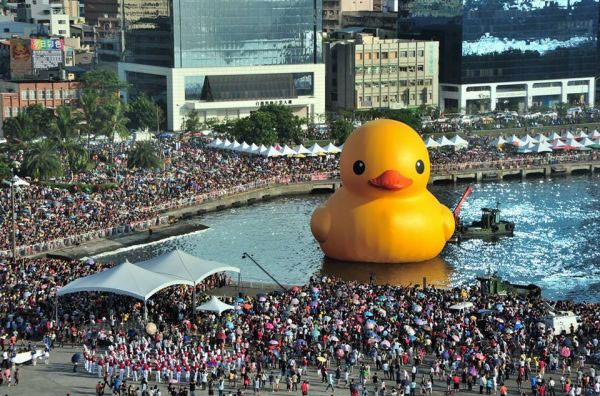by STEVE HAN
Park Won-soon, the mayor of the South Korean capital Seoul, openly admitted that he supports same-sex marriage, sparking fierce debate in the country that still remains largely homophobic.
In an interview with San Francisco Examiner during his visit to the U.S. last week, Park said that he hopes to see South Korea become the first Asian country to legalize same-sex marriage. Although Park acknowledged that struggle for social acceptance that homosexuals face in South Korea will likely persist, he stressed that it is imperative for the country to protect the constitutional rights of its people.
“Many homosexual couples in South Korea are already together,” said Park. “They are not legally accepted yet, but I believe the Korean Constitution allows [same-sex marriage]. We are guaranteed the rights to the pursuit of happiness. Of course, there may be different interpretations to what that pursuit means.”
No Asian country currently allows same-sex marriage as of now, but Taiwan may be the first country to do so after its legislature recently began considering a bill to legalize it. When asked if he believes Taiwan could be Asia’s first Gay-friendly country, Park reportedly replied, “I hope Korea will be the first.”
As expected, Park’s interview drew heavy controversy back home. Shortly thereafter, he backtracked on his comments through a Seoul city official, clarifying that he was merely voicing a personal opinion rather than declaring that he will seek legalization of same-sex marriage. He also added that he did not use the word “hope” to express his wish for South Korea’s legalization of same-sex marriage.
Nonetheless, Park’s earlier comments shouldn’t come as a surprise to those familiar with the former human rights lawyer’s career in South Korean politics. As Park was running for reelection last year, he issued a permit for a gay parade led by more than 10,000 people in Seoul’s downtown amid strong opposition from Christian protesters, hundreds of whom blocked the street.
Christians comprise nearly one-third of the population in South Korea, a conservative country where Protestant churches are immensely influential. In a poll conducted by Gallup Korea last year, 67 percent of those surveyed said they oppose the legalization of same-sex marriage while only 25 percent said they would support it.
By his own admission, Park remains skeptical over the possibility of South Korea’s legalization of same-sex marriage, but he has been rather resilient in making an organized effort to raise awareness of LGBT issues in South Korea. In 2001, Park established the Beautiful Foundation (Park left the foundation in 2010 to run for mayor), which reportedly has been funding LGBT groups.
But critics still argue that Park is endorsing same-sex marriage as a tool to win political favor. They say that by promoting himself as a progressive thinker who supports same-sex marriage — in addition to free government health care for all Seoul residents, civil rights for undocumented immigrants and free lunches for students at public schools — Park is simply setting himself up against the country’s conservatives to garner public support among the young voters as he’s vying to run for the 2017 presidential election.
Although the majority of South Koreans oppose same-sex marriage, the perception has already changed among the younger generation. In the same Gallup Korea poll that showed 67 percent of the survey participants oppose same-sex marriage, 52 percent of those between ages 19 and 29 said they are in support while only 38 percent of them opposed the idea.
“Protestant churches are very powerful in Korea [so] it isn’t easy for politicians [to endorse same-sex marriage],” Park reportedly told the San Francisco Examiner. “It’s in the hands of activists to expand the universal concept of human rights to include homosexuals. Once they persuade the people, the politicians will follow. It’s in process now.”
Click here to read a related KoreAm feature story about South Korean efforts to support LGBTQ youth.
Image courtesy of Seoul Labor Party







